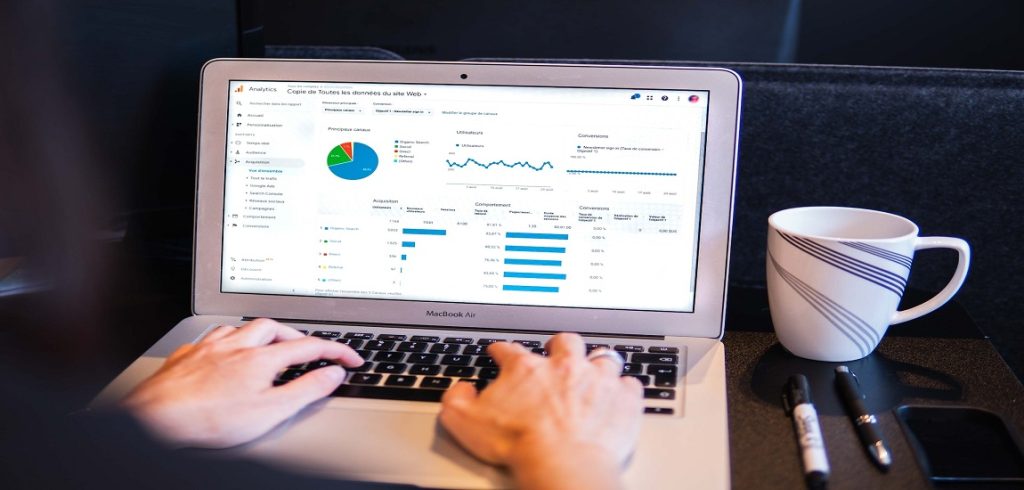
Pic Courtesy - Unsplash
Businesses are continually pushed in today’s data-driven world to make sense of enormous and complex datasets. This is where AI-powered business data analytics comes into play as a game changer. It not only aids in the extraction of useful insights from massive datasets, but it also monitors procedures, promotes data-driven decision-making, customizes report pulls, shows data in preferred forms, detects data deviations, and advises preventive steps. Let’s look at how artificial intelligence is changing the way organizations operate.
Extracting Valuable Insights From Large Datasets
One of the most notable advantages of AI-powered commercial data analytics is its unrivaled ability to extract important insights from massive, often unstructured datasets. Dealing with enormous data volumes has always been a daunting endeavor, resulting in missed opportunities and delayed decision-making. AI algorithms, such as machine learning and natural language processing, are meant to successfully address these difficulties.
These algorithms can detect patterns, trends, and abnormalities that human analysts may miss. AI helps businesses to make data-backed choices with previously imagined precision and speed by sifting through millions of data points in seconds.
Monitoring Procedures
Continuous business procedure monitoring is critical for discovering inefficiencies, eliminating risks, and guaranteeing compliance. This procedure can be automated using AI-powered data analytics technologies, making it more efficient and accurate. In manufacturing, for example, AI can monitor production lines for abnormalities and predict maintenance needs before equipment malfunctions, decreasing downtime and operational expenses.
In healthcare, artificial intelligence (AI) may monitor patient data in real time, alerting medical practitioners to any odd readings and assisting them in providing early interventions. The ability to monitor procedures in real time improves not just operational efficiency but also customer satisfaction and safety.
Fostering Data-Driven Decision-Making
Data-driven decision-making is the foundation of today’s successful enterprises. AI-powered data analytics enables firms to make data-driven decisions rather than gut instincts. These systems can deliver actionable insights by analyzing historical data, present patterns, and future projections.
In the retail sector, for example, AI may evaluate customer purchasing patterns to offer customised products and pricing tactics. In finance, AI can evaluate risk variables and assist investment professionals in making sound judgments. AI guarantees that firms remain competitive and adaptable in a quickly changing market by encouraging data-driven decision-making.
Customizing Report Pull
Every company has different reporting requirements. AI-powered data analytics technologies can tailor report generation to individual needs. This saves time and effort while also ensuring that decision-makers receive the most up-to-date information.
A marketing manager, for example, could demand information on consumer demographics and campaign performance, whereas a supply chain management might require reports on inventory levels and supplier performance. AI can generate these reports automatically, adapting them to each user’s tastes and needs.
Presentation Of Data In Preferred Mode
Data transmission is just as vital as data itself. AI-powered data analytics solutions can offer information in the format that the user prefers, such as interactive dashboards, visualizations, or written reports.
A dashboard with essential information presented visually might be beneficial for executives who need a rapid overview. Analysts, on the other hand, may require access to raw data for in-depth analysis. AI guarantees that data is presented in a way that facilitates comprehension and decision-making.
Alerts Deviation in Data
Data abnormalities and deviations must be detected in order to identify potential issues or possibilities. AI-powered data analytics can continuously monitor data streams and generate alerts when variations exceed predetermined criteria.
In cybersecurity, for example, AI may detect odd network activity that may suggest a hack. In manufacturing, AI can detect deviations in production lines that could lead to faults. AI assists organizations in responding proactively by highlighting variances in data, limiting risks and optimizing opportunities.
Suggests Precautions Measure
AI not only detects irregularities, but it can also recommend preventative measures to limit risks or capitalize on opportunities. These suggestions are based on historical data as well as predictive analytics.
For example, if AI identifies a sudden surge in customer complaints, it may recommend that customer service training be improved. When AI predicts disturbances in the primary supply chain, it might recommend alternate suppliers in supply chain management. AI ensures that firms are proactive in addressing difficulties by providing preventative measures.
AI-powered corporate data analytics is changing the way firms operate in today’s data-rich environment. It not only extracts important insights from massive datasets, but it also monitors procedures, encourages data-driven decision-making, customizes report pulls, shows data in preferred modes, alerts to data deviations, and advises preventive steps. Adopting AI-driven data analytics is no longer an option, but rather a requirement for businesses seeking to prosper in a competitive environment.




More Blogs
Expanding Globally: Navigating Challenges and Leveraging Strategies
7 Ways of Making Progress: A Startup Expert’s Guide
AI in the Insurance Business: Revolutionizing the Industry